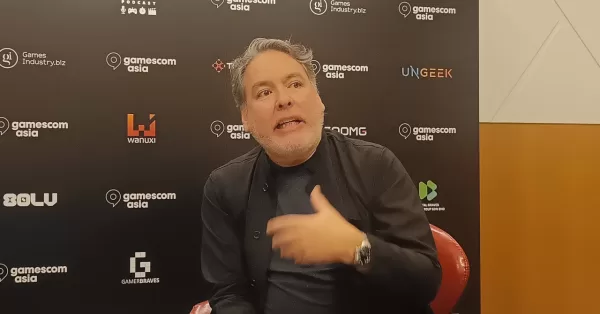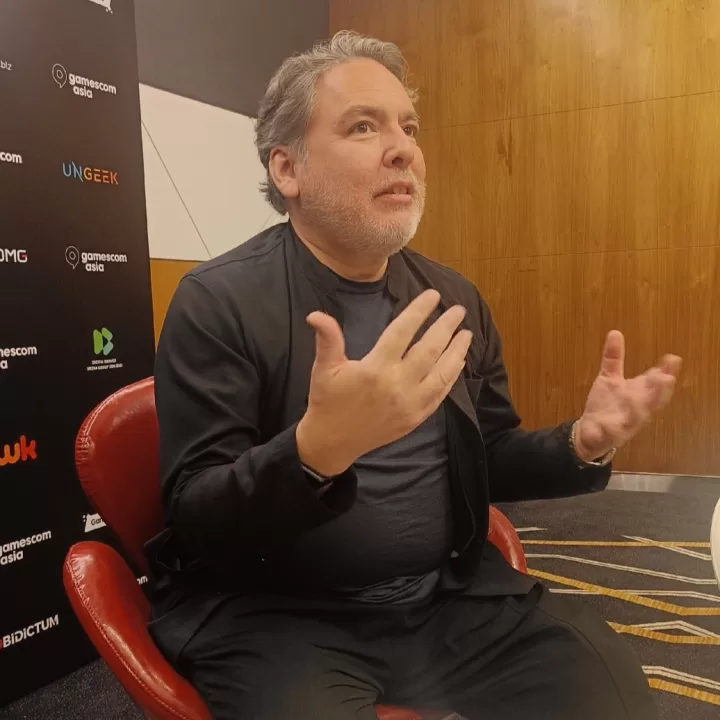Former PlayStation boss says games need to go back to 3-year development cycles
Shawn Layden also said that the industry focuses more on monetization now instead of what's fun.

At gamescom asia 2024, we got a chance to talk to Shawn Layden, current Strategic Advisor for Tencent Games and the former Chairman of PlayStation Worldwide Studios.
Our chat with Layden followed his fireside chat at the event’s main stage. During his stage discussion, Layden discussed his thoughts on why the lack of AA games is a threat to the gaming ecosystem.
Thus, our discussion with Layden was an extension of his stage chat. He specifically noted that the ever-increasing game development times are a key problem.
Before getting into this though, he first mentioned that this is an issue given the focus on monetization today, instead of simply what makes games fun.
“Now, I no longer speak for the Empire,” said Layden. “But in my view, I think what has been forgotten is a question that my boss used to ask me or people who were bringing games to him which was: ‘Okay, great. Where’s the fun part?’
“You know, don’t speak to me of your monetization cycle, or what the subscription revenue looks like, or how many MTX drops you’re going to have a year and the DLC aggregation over time. Where’s the fun part? Sell me on the fun. I will just stipulate that you’ve got the business model worked out. I think that’s what we’re missing.”
Of course, that’s not to say that forgetting to focus on what’s “fun” about games is the only problem. Layden also mentioned that this aspect has fallen by the wayside given the pressure exerted by investors and stakeholders.
In response to this, Layden said that a way to address this is by lowering budgets and teams, meaning shorter development cycles. This is something he mentioned during his fireside chat, though he went into detail about his thoughts on the matter during our discussion:
“You have to refactor the mindset. One way to do that, I think, is if you can keep your game budget under 50 million. You can get better traction [that way].
“So, how are you gonna get there? How are you gonna dial back the number? As I’ve said before, the cost of building a game is just people versus time, labor versus time, and salaries versus time. And if you’re going to take six to seven years to build a game with 800 people on it, that math goes to infinity pretty fast.
“So maybe, how can we do this in a three-year cycle? And how can we do this with less than 100 people and still give a high-quality, engaging experience? You look at something like sports games. I used to run the studio that made Major League Baseball The Show, and it’s shipped on opening day, April 1 every year, because MLB wasn’t going to shift the opening day of three more weeks even if in QA, I’m not ready.
“What that does is it instills a discipline where you have a task sheet and you prosecute it ruthlessly, that if by this date, this feature isn’t done, it’s gone. You are forced into that. We have to add value to the new proposition and new features, but every season, I can’t get all the new features in, because I’m capped on April 1. You can build a discipline that the team makes a new game in nine months every year.”

Shawn Layden at gamescom asia 2024
To further emphasize his point on discipline being important, Layden mentioned movies. Of course, ballooning budgets and production times have also plagued Hollywood blockbusters. In fact, there’s a similar discourse on how there’s a lack of mid-budget movies nowadays. There have been some success stories though like the Japanese hit Godzilla Minus One which took home an Oscar for Visual Effects while having a fairly small budget.
Shawn Layden explained:
“That’s a certain discipline that [exists] in a different field. [Take for example] Godzilla Minus One, which I think is the best Godzilla movie ever, and it cost them $16 million. You can’t do a trailer for Avatar for $16 million.
“You look at that and go, ‘How do you do you do that?’ You do that with discipline. If you watch the movie, you can tell all the big special effects pieces are in a very tight camera shot. So, we’re just rendering Godzilla’s head. We’re not also rendering the rest of his body, right? You don’t do the whole city in one shot. You do stuff at night. You can do a lot of tricks in the trade to manage your costs, and similar tricks are available in gaming.
“The Silent Hill fog, well, you can do that. That was more of a tech problem as the draw distances won’t go there. We understand that, but you can manage your feature set. You can have rules against people coming in saying, ‘Now trash that level, let’s rebuild it.’ No, we’re not doing it anymore.
“Go watch the TV show Mythic Quest on Apple. That’ll show you the absurd extent that gaming can go. Where someone who watched that said, ‘Oh, come on Shawn. There’s never been a case where a producer came in at one in the morning and said change the entire weapon set.’ I said, no, that’s [practically] a documentary, dude. That stuff happens, and so you’ve got to mitigate against that.
It’s really about discipline, knowing what the target is, getting everybody on board to understand that. But delivering in this space at this price point is how we’re going to get there. And if you can get back to two to three-year development cycles, then you can deliver three games in the span it takes to do one game. Now the math is better.”
Looking at the releases from big publishers like PlayStation and Xbox during this and the previous generation, it’s clear that development cycles have lengthened quite a lot as gaps between releases have become much longer.
On the flip side, while there are seemingly fewer AA games now, there are still some success stories For instance, Like a Dragon continues to sell quite well while having a nearly yearly release schedule.
Given his thoughts on the matter, it’ll be interesting to see if this trend will continue, or if publishers and studio narrow their scopes and budgets in the coming years. Maybe we’ll see a pivot from some of these big publishers as Shawn Layden hopes given that success is possible at a smaller scope.


